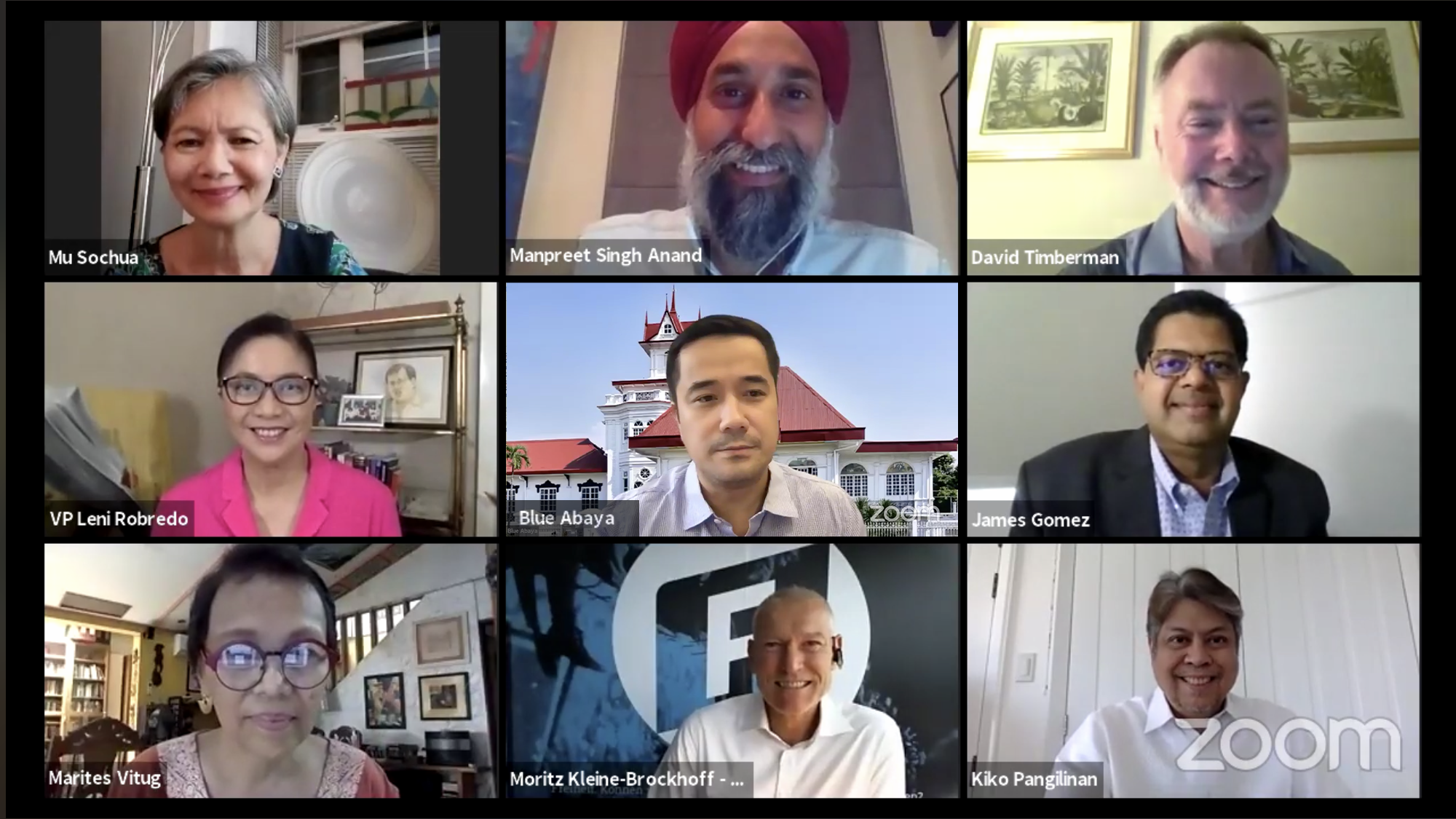US Election: ‘Democracy is on the ballot’

Democracy and the United States’ global leadership of democratic countries are at stake in the US presidential election in November, one of the most important in the world. The results, which are widely anticipated, will have a far-reaching impact on Asia.
Vice-President Leni Robredo and Senator Francis “Kiko” Pangilinan, chair and president of the Liberal Party of the Philippines, respectively, stressed these core ideas in the webinar, “The 2020 US Presidential Election: Will it Matter for Democracy and Human Rights in Asia?”, held on September 11. Organized by the Council of Asian Liberals and Democrats, the Friedrich Naumann Foundation (FNF) for Southeast and East Asia, and the Asia Centre, it was the third in a series of webinars on the future of democracy in the region.
“Asians… will be impacted by how the American people will select the president who will be…leading the nation’s recovery from its slide to authoritarianism,” Pangilinan said in his opening remarks.
Reflecting a widespread sentiment, Robredo and Pangilinan pointed to the US as a country that is losing its sheen in the democratic world. The confidence of fellow democracies in the US is eroding as “Americans face inequality and brutality,” Pangilinan added.
While the US has long been considered “the brightest beacon of democracy,” in the words of Vice President Leni Robredo, dark things have been taking place there. “…lies are spoken from pulpits of power, children seeking refuge are caged, knees are pressed unto the necks of innocents, and those in power respond by stoking further fear and division.” All these send an ominous message: “It can certainly happen in places where democracy is much more fragile,” Robredo said in her keynote speech.
American, Southeast Asian voices
Panelists from the US and Southeast Asia shared similar sentiments which rippled throughout the webinar.
“The choices [in the 2020 election] are between democratic values or authoritarianism, between the rule of law or rule by dictator…” said Manpreet Singh Anand, State Department official during the Obama administration and currently regional director for Asia-Pacific of the National Democratic Institute. “Democracy is in the ballot in November.” He made it clear, though, that he was speaking in his personal capacity.
Under President Donald Trump, Anand pointed out that US leadership around the world has been “damaged.” This has resulted from, among others, the “dismantling of critical institutions, both domestically and multilaterally, and the loss of its championship of democratic values.”
Equally emphatic was Mu Sochua, vice-president of the opposition Cambodian National Rescue Party, who described the election as a “defining moment” for the US. She called on Americans to be vocal and “vote for America that is a leader in the world…not just with the example of its power but with the power of its people.” Sochua has been in exile in the US since 2017.
“We want to see the White House as we have known it in history…the great defender of the core pillars and institutions of democratic values,” she continued. “The US is needed to reinforce its commitment in fighting corruption, defending against authoritarianism and advancing human rights across the world.”
The US election has special significance for Cambodia, Sochua added, since it is one of the key signatories of the Paris Peace Accords. As such, it will play a role in advocating for liberal democracy in Cambodia.
From David Timberman, director for Asia Programs of Freedom House, came a sobering thought on the decline of US leadership. “One silver lining is we’re now more inclined to recognize and reflect on our national shortcomings, a potentially positive development for Americans and for US policy: to realize that we’re just another country trying to address the imperfections of its democracy.” This, he said, opens up possibilities for equal partnerships and more cooperation with other countries and civil society as well.
Similarly, James Gomez, regional director of the Asia Centre, highlighted the need to work with civil society, strengthen it institutionally, and help enlarge the democratic space.
Vote for America that is a leader in the world… Not just with the example of its power but with the power of its people.

What can Asia expect from a Biden administration?
Should Joe Biden, the candidate of the Democratic Party, win, a full agenda awaits him. For Anand, it is basically to put the house in order. Here’s his to-do list for a new administration:
• Restore American leadership for democratic values.
• Revitalize strategic relationships with treaty allies and partners.
• Rebuild the foreign policy foundation of the US, particularly the diplomatic corps.
• Recreate economic opportunities.
• Create a more balanced space with China: Cooperate where possible, compete where advantageous and counter where necessary.
Timberman sees a “stronger and more genuine presidential rhetoric in support of democracy and human rights; a return to a concern for a broader range of human rights, including labor rights and LGBTQ, different approaches to address issues of religious freedom, and a return to multilateral approaches to foreign policy and promoting democracy and human rights.”
He reminded the audience that bipartisan support for democracy and human rights remains in the US Congress. But there will be “fiscal challenges” ahead caused by the pandemic.
The geopolitical perspective, however, is unlikely to fundamentally change under Biden, said Timberman, since it will still be the desire of the US government to maintain good relations with semi-authoritarian governments “if that’s considered a national security issue.” He sees a “continued reluctance to push too hard on democracy and human rights in countries where the US government doesn’t want the other government to become much closer to China.”
Marites Dañguilan Vitug is an author and editor-at-large of Rappler.